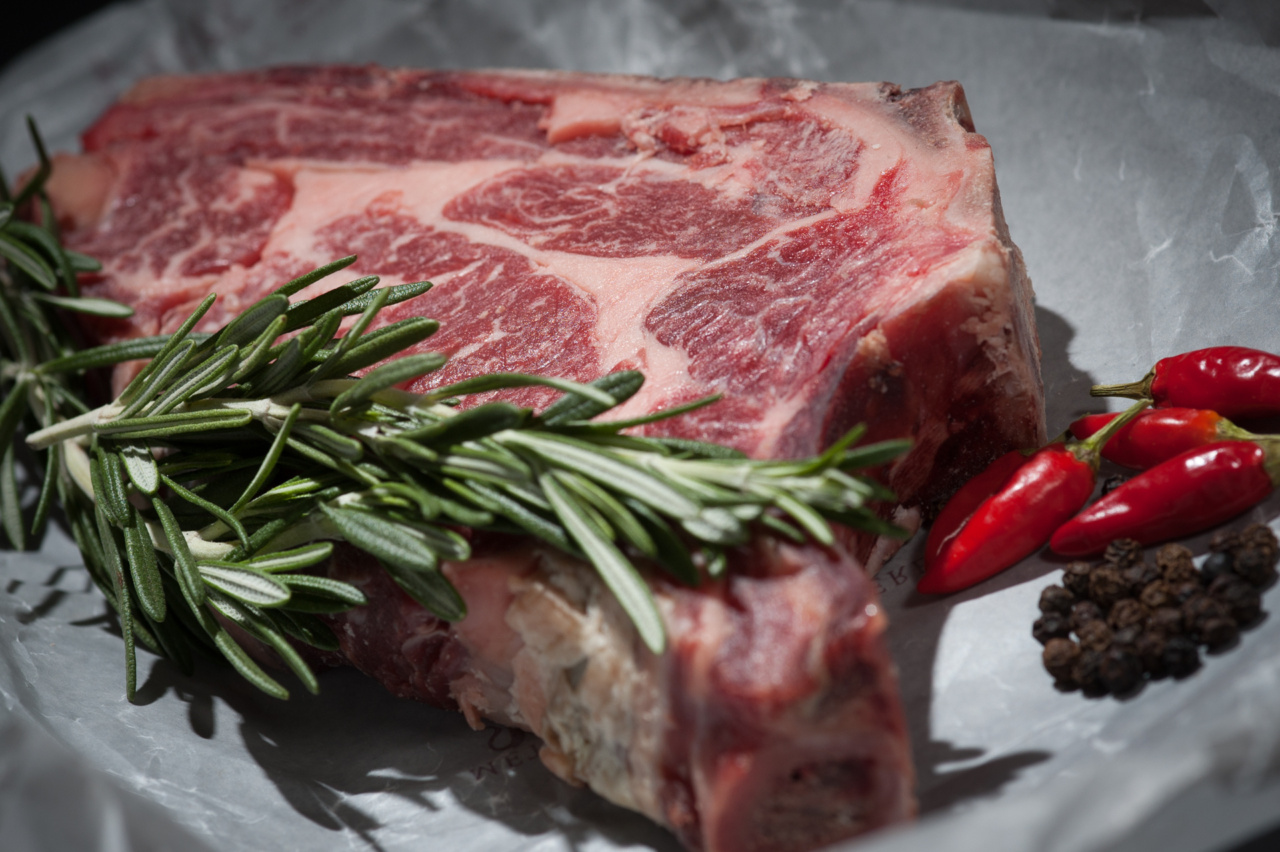In recent years, there has been a growing concern about food safety and the rise of food-borne illnesses. These illnesses are caused by consuming food or beverages that are contaminated with harmful bacteria, viruses, parasites, or toxins.
While there are various measures in place to ensure food safety, such as proper handling, storage, and cooking techniques, one often overlooked aspect is the role of spices in preventing and combating food-borne illnesses.
Spices have been used for centuries not only for flavor enhancement but also for their antimicrobial properties.
1. Turmeric
Turmeric is a bright yellow spice commonly used in curries and other Asian dishes. It contains an active compound called curcumin, which has powerful antimicrobial and anti-inflammatory properties.
Several studies have shown that curcumin can inhibit the growth of various bacteria and fungi, including those that cause food poisoning, such as Salmonella, E. coli, and Listeria.
Adding turmeric to your recipes can not only enhance the flavor but also help kill any potential pathogens present in the food.
However, it is important to note that the antimicrobial activity of turmeric is most effective when combined with heat and fat. Therefore, it is advisable to cook turmeric-containing dishes to make the most of its antimicrobial properties.
2. Cinnamon
Cinnamon is a delicious spice derived from the bark of trees belonging to the Cinnamomum family. It has been used for centuries for its medicinal properties and is known for its rich, warm flavor.
In addition to its pleasant taste, cinnamon also possesses antimicrobial properties, making it effective against food-borne pathogens.
Studies have found that cinnamon can inhibit the growth of E. coli, Salmonella, and other bacteria commonly associated with food poisoning. The antimicrobial activity of cinnamon is attributed to its essential oils, such as cinnamaldehyde.
Incorporating cinnamon into your cooking or even sprinkling it on your favorite dishes can provide an extra layer of protection against harmful microorganisms.
3. Garlic
Garlic has been used for centuries as a natural remedy for various ailments due to its potent antimicrobial properties. It contains a compound called allicin, which has been shown to exhibit antibacterial, antiviral, and antifungal effects.
Several studies have demonstrated the effectiveness of garlic in inhibiting the growth of common food-borne pathogens, including E. coli, Salmonella, and Staphylococcus aureus.
Incorporating garlic into your recipes can not only add a flavorful kick but also provide protection against potential food-borne illnesses.
4. Ginger
Ginger is a versatile spice known for its distinct flavor and various health benefits. It is commonly used in Asian cuisine and has been used for centuries in traditional medicine.
In addition to its immune-boosting properties, ginger also possesses antimicrobial activity against a wide range of pathogens, including those responsible for food-borne illnesses.
Research has shown that ginger can inhibit the growth of bacteria such as Salmonella, Campylobacter, and Listeria. Moreover, it has been found to be effective at reducing the formation of toxins produced by certain bacteria.
Adding ginger to your culinary creations can not only enhance the flavor but also help protect against harmful microorganisms.
5. Oregano
Oregano is a versatile herb commonly used in Mediterranean and Italian cuisine. It contains several potent compounds, including carvacrol and thymol, which exhibit strong antimicrobial properties.
These compounds have been shown to inhibit the growth of various bacteria, including those that cause food poisoning.
Studies have found that oregano essential oil can effectively kill Salmonella, E. coli, and other food-borne pathogens.
Incorporating oregano into your cooking, either fresh or dried, can provide both flavor and protection against potential food-borne illnesses.
6. Cloves
Cloves are dried flower buds that have a pungent, sweet flavor. They are commonly used in both sweet and savory dishes and are known for their antimicrobial properties.
Cloves contain a compound called eugenol, which has been shown to possess strong antibacterial and anti-inflammatory effects.
Research has demonstrated that cloves can inhibit the growth of bacteria such as E. coli, Salmonella, and Listeria. Furthermore, cloves have also been found to be effective against certain fungal pathogens.
Adding cloves to your recipes can not only impart a delightful aroma but also provide an additional layer of protection against harmful microorganisms.
7. Thyme
Thyme is an herb widely used in Mediterranean cuisine for its aromatic flavor. It contains several compounds, including thymol and carvacrol, which possess strong antimicrobial properties.
Thyme has been used since ancient times for its medicinal benefits and is known to have antibacterial and antifungal effects.
Studies have shown that thyme essential oil can effectively inhibit the growth of various food-borne pathogens, including Salmonella, Campylobacter, and E. coli.
Incorporating thyme into your cooking can not only add a delightful taste but also provide additional protection against harmful microorganisms.
8. Rosemary
Rosemary is an aromatic herb commonly used in Mediterranean cuisine. It has a distinct pine-like fragrance and a savory flavor.
Rosemary contains several active compounds, including rosmarinic acid and carnosic acid, which possess antimicrobial properties.
Research has found that rosemary extracts can inhibit the growth of various bacteria, including those responsible for food poisoning. The antimicrobial activity of rosemary is believed to be due to its ability to disrupt the cell membranes of bacteria.
Incorporating rosemary into your recipes can not only enhance the taste but also help defend against food-borne pathogens.
9. Black Pepper
Black pepper is one of the most commonly used spices worldwide. It not only adds a spicy kick to dishes but also possesses antimicrobial properties.
Black pepper contains a compound called piperine, which has been shown to exhibit strong antibacterial effects.
Studies have demonstrated that black pepper can inhibit the growth of bacteria such as Salmonella, E. coli, and Staphylococcus aureus.
Additionally, black pepper has also been found to enhance the antimicrobial activity of other spices, such as turmeric and cinnamon. Adding black pepper to your recipes can not only enhance the flavor but also provide an extra layer of protection against food-borne illnesses.
10. Mustard
Mustard is a condiment made from the seeds of the mustard plant. It is known for its distinct tangy flavor and is commonly used in various cuisines worldwide. Mustard seeds contain a compound called sinigrin, which possesses antimicrobial activity.
Research has shown that mustard can effectively inhibit the growth of various bacteria, including those that cause food poisoning. Furthermore, mustard has also been found to exert an antibacterial effect on pathogenic strains of E. coli.
Including mustard in your recipes, either as a seasoning or in the form of prepared mustard, can not only add a tangy kick but also help protect against food-borne pathogens.




























